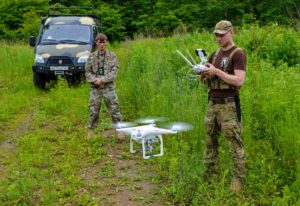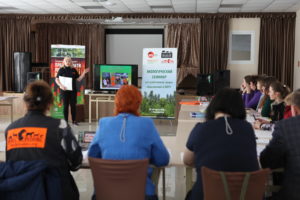The most recent Phoenix Fund report shows that despite the COVID-19 pandemic, the conservation of Amur tigers has continued mainly as planned thanks to the flexibility and resourcefulness of the local patrol teams and educators.
Phoenix Fund has been working in this area since 1998 and with the WildCats team for almost that long with an overall aim of stabilising Amur tiger and Amur leopard populations by reducing poaching. This is done by providing National Park staff in five Protected Areas (PA) with training in best practice methodology and conservation technology, equipment and resources.
This interim report covers the period February to July 2020 and shows that patrolling has continued across the five PAs where Phoenix Fund is supporting the National Park rangers. Despite the COVID-19 pandemic, educational activities are on schedule, namely the 15th art contest with the publication of wall calendars and children’s paintings, an annual workshop for educators, and eco-classes at four eco-centres in Primorsky krai. Promotional materials and gifts for Tiger Day Festival in Primorsky Krai and Jewish Autonomous Province have been purchased and produced.
Initial activities and achievements:
- Patrols travelled on foot, via boat, motor, quadbike and snowmobile a total of 213,304km.
- 82 violations revealed compared to 165 violations in the first half of 2019.
- The rangers seized and confiscated two guns in two different PAs.
- 235,000 Rubles (approximately £2,400) in fines.
- Five legal proceedings against perpetrators were commenced.
- Collaborative meetings were held with WCS Russia as planned using Covid-19 protocols.
- Tiger Day Festivals have been planned and resourced for September with an online celebration ready as Plan B.
- Art Contest held with 1872 submissions from children Russia, Kazakhstan and Korea.
- Calendars for 2021 made and distributed using selected submissions.
- The Educators workshop was held in March before lockdown with inspirational resources and ideas provided for 50 educators.
- 181 lessons to Eco lessons in four centres reached 2155 children. However, less than half the usual number of children attended online Zoom based lessons for 6 weeks during April and May.




